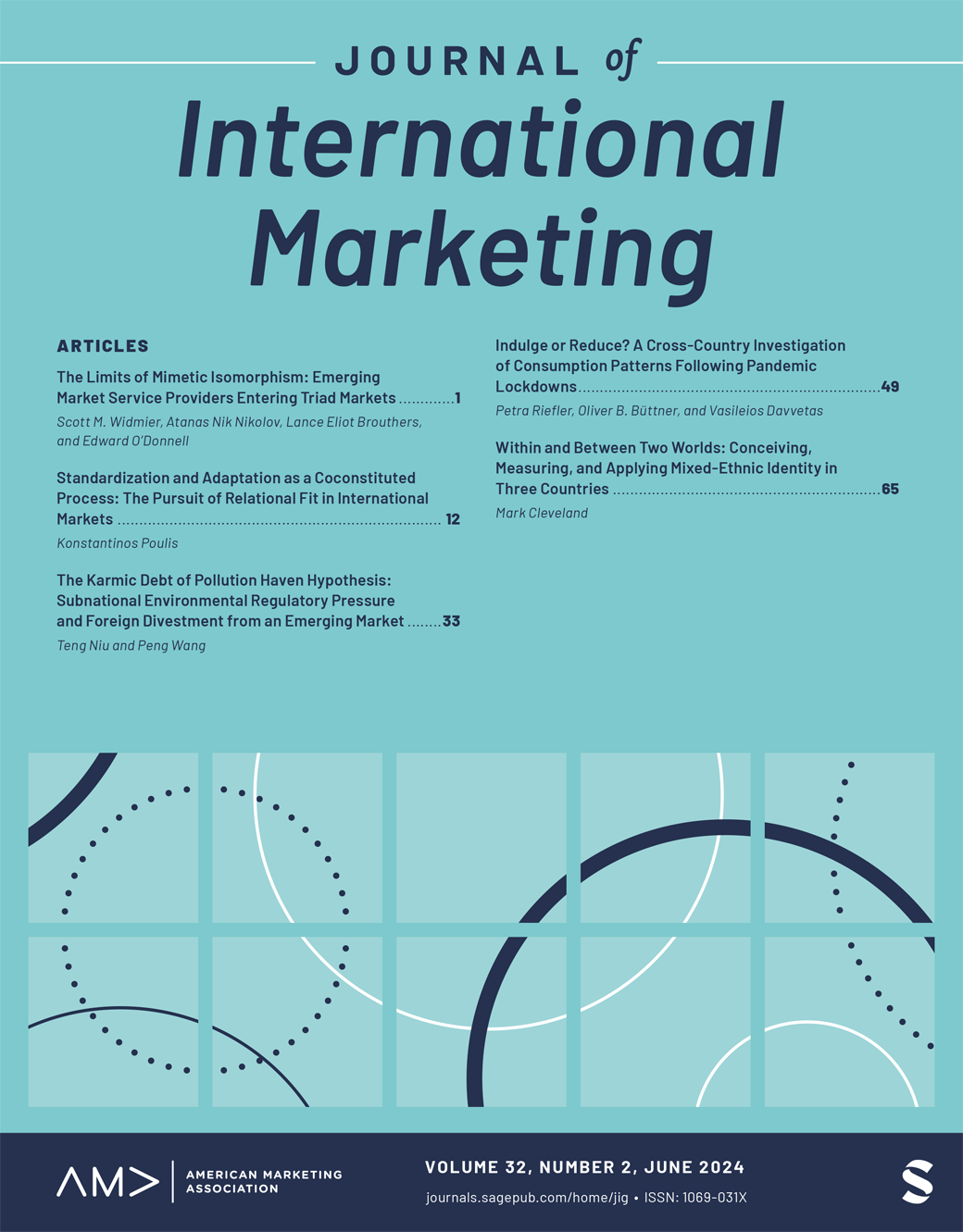Managing the Challenge of Luxury Democratization: A Multicountry Analysis
IF 4.9
2区 管理学
Q1 BUSINESS
引用次数: 5
Abstract
Once the preserve of the elite, many luxury brands are now targeting the rapidly rising global middle classes. This “democratization of luxury,” understood as the perceived reduction in distinctiveness, exclusivity, and self-differentiation of luxury goods due to wider availability and access, has changed the luxury industry landscape substantially, and yet it remains an underexplored phenomenon in academic research. Building on the theory of network effects, this study focuses on how democratization influences the relationship between conspicuous signaling and luxury purchase intentions. Analysis of primary data (n = 1,156) from luxury consumers in developed (United States and Spain) and developing (China and India) markets with distinctly differing economic trajectories reveals the varying negative moderating influence of democratization. These negative effects of luxury democratization are more pronounced in developing markets (Study 1). Further, the findings highlight that consumer indulgence can help mitigate negative externalities associated with luxury democratization (Study 1) and identify its underlying mechanism through positive affect (Study 2). The multimethod approach demonstrated in this study sheds new light on consumer perceptions of luxury democratization and offers actionable implications for international luxury firms on managing this challenge in developed and developing markets.管理奢侈品民主化的挑战:一个多国分析
许多奢侈品牌曾经是精英阶层的专属,现在却瞄准了迅速崛起的全球中产阶级。这种“奢侈品民主化”,被理解为由于更广泛的可获得性和可获得性,奢侈品的独特性、排他性和自我差异性有所减少,已经极大地改变了奢侈品行业的格局,但它在学术研究中仍然是一个未被充分探索的现象。本研究以网络效应理论为基础,重点研究民主化如何影响炫耀信号与奢侈品购买意向之间的关系。主要数据分析(n = 1156),揭示了民主化的不同负面调节影响。奢侈品民主化的这些负面影响在发展中市场更为明显(研究1)。此外,研究结果强调,消费者放纵有助于减轻与奢侈品民主化相关的负外部性(研究1),并通过积极影响确定其潜在机制(研究2)。本研究中展示的多方法方法为消费者对奢侈品民主化的看法提供了新的视角,并为国际奢侈品公司在发达和发展中市场应对这一挑战提供了可操作的启示。
本文章由计算机程序翻译,如有差异,请以英文原文为准。
求助全文
约1分钟内获得全文
求助全文
来源期刊

Journal of International Marketing
BUSINESS-
CiteScore
8.70
自引率
17.20%
发文量
28
期刊介绍:
As the globalization of markets continues at a rapid pace, business practitioners and educators alike face the challenge of staying current with the developments. Marketing managers require a source of new information and insights on international business events. International marketing educators require a forum for disseminating their thoughts and research findings. Journal of International Marketing(JIM) is an international, peer-reviewed journal dedicated to advancing international marketing practice, research, and theory. Contributions addressing any aspect of international marketing management are published each quarter.
 求助内容:
求助内容: 应助结果提醒方式:
应助结果提醒方式:


